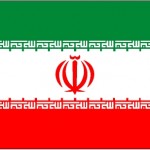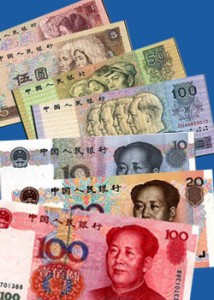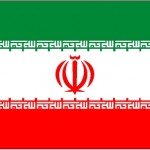
1245 GMT: The President's Man. Definitely looks the battle within is escalating....
Ahmadinejad Chief of Staff Esfandiar Rahim-Mashai has hit back at the criticism of Iran's military chief, General Hassan Firouzabadi, that the aide's remarks on Iran and Islam "are a crime against national security" (see 0650 GMT).
Rahim-Mashai announced in a meeting with IRIB managers and editors of state broadcasting that he will file a suit against Firouzabadi to enlighten the public:
"I'm forced to follow these ugly accusations by judicial means."1235 GMT: The Human Rights Lawyer (cont.). Mohammad Mostafaei
has rejected the allegation of financial fraud, made by the Tehran Prosecutor General (see 0900 GMT): "If they want to sue me because of the accounts of my clients, they have to do the same with all marjah (senior clerics) who have charity accounts."
1210 GMT: MediaWatch.
Green Voice of Freedom has launched a
Turkish edition.
1200 GMT: The Hunger Strike: A relative has said Keyvan Samimi
will continue his hunger strike in Evin Prison until the 15 who have taken food are transferred to "general" Ward 350. Families have still not been allowed to visit the detainees.
1145 GMT: More on "Election Manipulation" Revolutionary Guard Audio. A follow-up to our feature on Tuesday....
In an interview with
Rah-e-Sabz, Alireza Alavi-Tabar assesses the divisions between "pragmatic" and "radical" hard-liners in light of the audio.0945 GMT: Calling the Broadcaster to Account. The International Campaign for Human Rights in Iran has launched a campaign against the head of Islamic Republic of Iran Broadcasting, accusing him of cooperation with Iran's intelligence service and violating human rights.ICHRI's Hadi Ghaemi said Ezatollah Zarghami should be dismissed because he worked with Government interrogators in the production of televised confessions and trials and the "Fitna" (Sedition) series against leading opposition figures and activists, as well as the distortion of cases of post-election victims such as Neda Agha Soltan.0925 GMT: Culture Corner. The Supreme Leader has reportedly cancelled conference on “Pursuit of Job Security and Social Welfare for Cinema Professionals”. A prominent cinema director told
Rooz, “Agents from the Intelligence Ministry have called for
the cancellation of the gathering through threatening phone calls. Finally, they told us that the office of the Supreme Leader was against this gathering” and that, if the event went on as scheduled, it would be confronted harshly.
The Supreme Leader is not having much luck, however, with his recent proclamation against music.
Melody and Safoura Safavi, two sisters from the Iranian band Abjeez (Persian slang for sisters), have responded with less than enthusiasm.
Safoura Safavi said, "I think it's -- I'm sorry to say this, to use this word -- but it's ridiculous. I mean, you can't prohibit something like music. And of course, it's a way to control because, in a way, saying that, it shows how strong the force of music is [in Iran]...."
0920 GMT: Political Prisoner Watch. Last week, there were reports that Farah Vazehan had been sentenced to 15 years in prison. However, a reliable source has told RAHANA that Vazehan has been
sentenced to death for mohareb (war against God).
0900 GMT: The Human Rights Lawyer. Mohammad Mostafaei, the lawyer forced to flee Iran because of possible arrest, may be in Norway, but the Iranian authorities haven't forgotten him....
Tehran Prosecutor General Abbas Jafari Dowlatabadi has said that Mostafaei is accused of
"financial fraud."0830 GMT; Shortages and Violence.
Rah-e-Sabz claims that people in Ahwaz in southern Iran are
trying to stage protests in front of the Governor's office because of bad water, rising youth unemployment, and unpaid wages. A seven-member Government
commission has been sent from Tehran to the port offices of Abadan and Khorramshahr amidst accusations of fraud and corruption.
Three days of clashes between security forces and residents in Dahdez in Khuzestan in southwestern
Iran have allegedly killed seven people. The protests are over shortages and problems in basic services.
Turkey, despite claims of increasing supplies,
reduced its gasoline exports to Iran by 73 percent in July, according to data from the Istanbul Exporters Association of Chemical Materials. Turkey supplied 2.5 percent of Iran's total gasoline needs during the month.
Japan's Toyota Motor Corporation
has suspended auto exports to Iran indefinitely to avoid any potential repercussions in the US market. Toyota exported about 4,000 automobiles to Iran in 2008, but only 250 in 2009.
0840 GMT: Iran-US Talks? Set aside Ahmadinejad's rhetoric, and the interesting passage in his interview with
The New Yorker is his renewed call for discussions with the US on regional issues in the Middle East and Central Asia.
Mixed, even confusing, signals continue from the Supreme Leader's office on the possibility. Former Foreign Minister Ali Akbar Velayati, the foreign policy advisor to Ayatollah Khamenei, has denied a report that he "welcomes" nuclear talks with the US. However, Iran has never rejected talks, and "negotiations with other countries such as P5+1 member states (the US, Russia, France, Britain, China, plus Germany) and the Vienna group (the US, Russia, France, and the International Atomic Energy Agency) -
will be carried out while considering the Islamic Republic's rights".
0710 GMT: Washington's Human Rights Intervention. Secretary of State Hillary Clinton on Tuesday called on Iran to release all political prisoners, expressing alarm about the fate of several specific detainees who are
"in danger of imminent execution". She specifically named Jafar Kazemi, Mohammad Haj Aghaei, and Javad Lari.
0820 GMT: The Regime's Backfiring Culture of Fear. Writing in
The National, Michael Theodoulou considers
how the regime efforts to quash the opposition through allegations of foreign-supported regime change --- recently through the statements of the head of the Guardian Council, Ayatollah Ahmad Jannati --- have run into difficulties.
0800 GMT: The Brazil Front.
Brazil has accepted UN sanctions against Iran, despite concerns over measures and its proposal with Tehran and Turkey on talks over uranium enrichment.
Brasilia has also
made a formal offer of asylum to Sakineh Mohammadi Ashtiani, the Iranian woman sentenced to death for adultery.
0730 GMT: Political Prisoner Watch.
Agence France Presse has picked up on the claimed ending of the hunger strike by 16 detainees in Evin Prison.
A Revolutionary Court has sentenced reformist journalist Badrolsadat Mofidi
to six years in prison and banned her for five years from journalism. Mofidi was convicted of "conspiring to commit crimes and propaganda against the regime".
Mofidi, the secretary of the Iran Journalists Association, was imprisoned for more than five months after the June 2009 election before being released on bail.
A website has described
the abuse of Kurdish activist Ahmad Bab, who was detained last September.
0705 GMT: Opposition Messages. Former President Mohammad Khatami, marking Nationalist Journalists' Day, has said that the real sedition in Iran is spreading awkward lies. He compared the rigged election to the CIA-backed coup of 1953 and declared,
"We should learn from this oppression."Mehdi Karroubi has issued
a message for the holy month of Ramadan, "Let us pray to God to save our valiant prisoners, held by the rule of oppressors."
0700 GMT: Talking Tough. Former Revolutionary Guard commander General Hossein Kan'ani Moghadam has said that
Iran has dug mass graves to bury U.S. soldiers in preparation for an American attack.
0650 GMT: The President's Right-Hand Man. Hmm, this is getting interesting....
Khabar Online reports --- passing on news or making mischief? --- the alleged comment of Iran's head of armed forces, Brigadier General Hassan Firouzabadi that the remarks of Ahmadinejad Chief of Staff Esfandiar Rahim-Mashai "
are a crime against national security".
0620 GMT: Ahmadinejad's Uncoded Message. Meanwhile,
Press TV and
Khabar Online has picked up on the President's interview with
The New Yorker, featured in EA yesterday.
Press headlines Ahmadinejad's claim, "US Worst Suppressor of Media, People", but adds his
offer to “help bring the US out of the crises” it has created in Iraq and Afghanistan: “Iran is ready to help them, based on justice and respect....I hope there is someone with an ear among US politicians to understand this and brings no more deaths to the people in Iraq and Afghanistan as well as US soldiers.”
Khabar --- Speaker of Parliament Ali Larijani's outlet --- features Ahmadinejad's claim that western politicians
"have no idea about Iran" as "all my opponents are free". The President is also quoted as saying that Iran's people are friends of Jews, but Europe should take back its Jews, or give them a place in Alaska, the USA, or Canada.
0600 GMT: We begin this morning with several intriguing, if sometimes coded, messages.
The easiest to decipher is a letter from Mir Hossein Mousavi, issued last Thursday and now translated by Khordaad 88. Mousavi, referring to Iran's Constitutional Revolution in the early 20th century, makes clear that the "dictatorship" of authorities is not acceptable, even when it is carried out in the name of religion. We post the text in a separate entry.
We have also posted an analysis of a more mysterious intervention from former President Hashemi Rafsanjani. In a section of his memoirs which has "randomly" appeared on his website, Rafsanjani recalls how the first President of the Islamic Republic, Abolhassan Banisadr, was forced to step down. But could the passage also be a reference to Iran 30 years later?
And then an EA correspondent re-reads a statement by Tehran Mayor Mohammad-Baqer Qalibaf on the recent "I am the Rule of the Prophet" fatwa by the Supreme Leader. Earlier this week we noted this as a defence of Ayatollah Khamenei amidst the pressure on him.
Our correspondent, however, thinks that Qalibaf may have amore complex message, supporting the Supreme Leader but also pointing out limits on his authority. He notes these passages from Qalibaf's interview:
In my view, the Exalted Supreme Leader is not articulating authorities that go beyond the boundaries of religious jurisprudence, and the ceiling for these authorities is the limits of the religious law (canon), the expediencies and the preservation of the Islamic system and public interests....
The meaning of this fatwa is that, if a person obeys and follows the Supreme Leader's governmental rulings but based on his own reasoning and personal understanding questions the correctness of those rulings, according to the Supreme leader's own fatwa we cannot accuse that person of being against velayat-eb faqih. In fact, the Supreme Leader has emphasized that the standard is not to embrace every view expressed by the Supreme Leader. We can only call a person anti-velayat-e faqih when that person opposes the vali-ye faqih's (i.e., the Supreme Leader's) governmental rulings, not when he does not subscribe to every view that is articulated by the Leader. This fatwa guarantees the rights of the citizen under the Islamic system. Therefore, a person who follows another source of emulation should only follow those fatwas that have been issued by that source of emulation....
With this fatwa, the Supreme Leader has in fact expanded the insiders' geography and gave it a greater depth....We now understand what the Supreme Leader means when he talks about the people who fall inside the system. We now understand and have become more convinced that his approach is one that is geared toward attracting the maximum number of individuals.
And Qalibaf also may have also had a message for those who tried to use the Supreme Leader's words to go after political opponents, inside as well as outside the Iranian system:
The same people who until today would accuse anyone that they wanted of being anti-velayat-e faqih (clerical authority)...were using that label as a political tool to strengthen or weaken other actors or eliminate them from the political scene altogether.
 Tuesday, August 17, 2010 at 7:06
Tuesday, August 17, 2010 at 7:06  China Clears Inter-city Rail Projects: The National Development and Reform Commission on Friday approved inter-city rail transit networks covering more than 2,000 kilometres to accelerate regional integration.
China Clears Inter-city Rail Projects: The National Development and Reform Commission on Friday approved inter-city rail transit networks covering more than 2,000 kilometres to accelerate regional integration.



